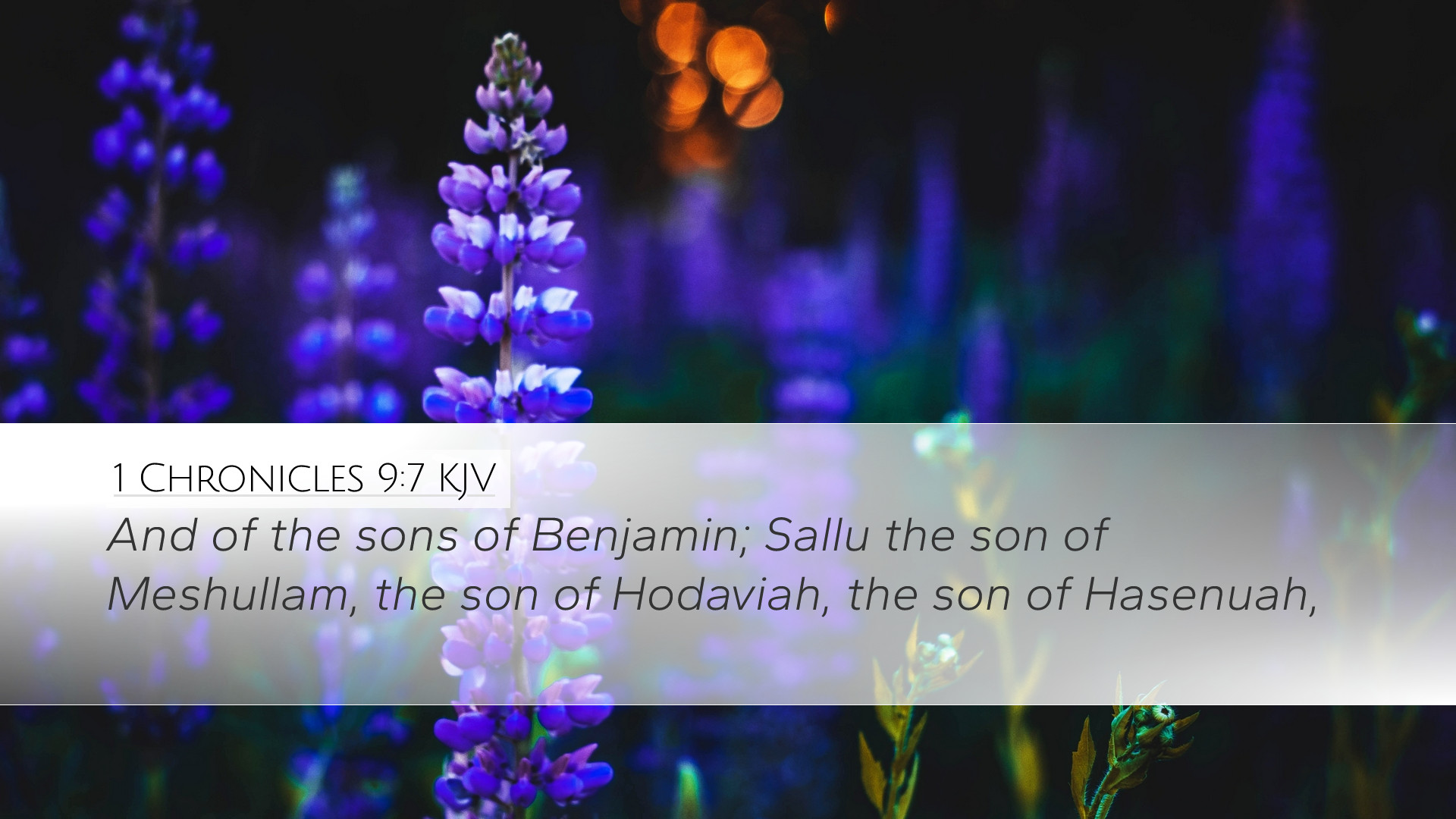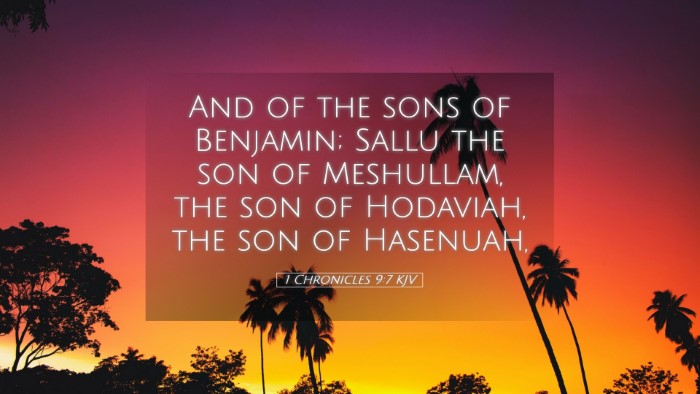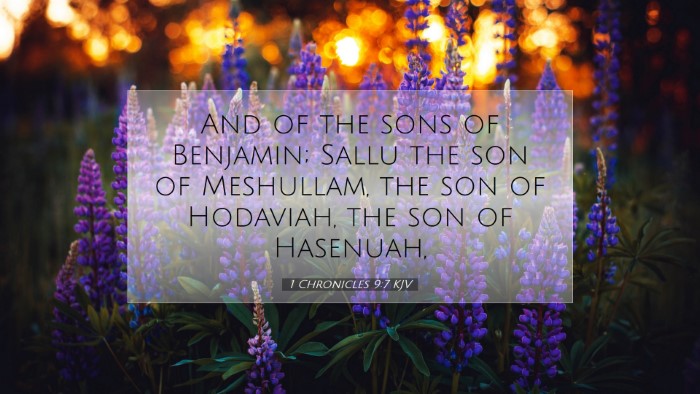Commentary on 1 Chronicles 9:7
Verse: 1 Chronicles 9:7 - "And of the sons of Benjamim; Sallu the son of Meshullam, the son of Hodaviah, the son of Jahza, of the sons of Benjamim."
Overview
This verse is part of a genealogical record that underlines the importance of lineage in the history of Israel. It highlights the names and lineage of the descendants of Benjamin, one of the twelve tribes of Israel. Geographical and tribal identities play a crucial role in understanding the context of the Jewish people after their return from exile.
Exegesis
Historical Context: The book of Chronicles provides insight into the post-exilic community's structure, presenting a history that focuses particularly on the tribe of Judah and the Levites, underscoring their spiritual leadership in the restoration of Jerusalem and the Temple.
This genealogy, while seemingly mundane, is vital for establishing the legitimacy of the Israelite community's leaders and their claims of heritage. The records indicate God's faithfulness to His promises despite the exiled condition of His people.
Insights from Commentators
Matthew Henry
Matthew Henry emphasizes that genealogies like this one serve an essential purpose in Scripture. They do not just serve as historical data but also provide assurance of God's providential care over His chosen people. By mentioning these names, Henry suggests that it is a reminder of God’s promises to the patriarchs and the ongoing fulfillment of those promises through their descendants.
Albert Barnes
Albert Barnes notes that the significance of the tribe of Benjamin cannot be understated. As one of the smaller tribes, it was notable for remarkable leaders, such as King Saul. Barnes also highlights how these records serve to affirm the continuity of the Jewish population from the time of the exile back to the covenant roots. Every name listed illustrates God's ongoing interaction with His people, ensuring their legacy is remembered.
Adam Clarke
Adam Clarke provides a theological reflection on the importance of knowing one’s ancestry. He posits that understanding one's lineage fosters a sense of belonging and responsibility. Furthermore, Clarke points out that genealogies in Scripture serve as a vehicle through which God's faithfulness is continuously displayed. Specifically, the mention of individuals within the lineage serves as a testimony to the faith and heritage of those who came before.
Theological Reflection
This verse emphasizes that God honors the memory of His people. Every name carries weight and history, reflecting a covenant relationship. The importance placed on genealogies can challenge contemporary readers to consider their own spiritual heritage and the responsibility they carry forward.
Liturgical Meaning
For pastors and theologians, this passage serves as a reminder of the significance of community and connection to God’s past actions. In contemporary worship settings, recognizing one's heritage can inspire a deeper understanding of the faith, fostering community and collective worship rooted in history.
Application for Pastors and Leaders
- Importance of Heritage: Encourage congregations to explore and value their spiritual backgrounds and the stories of their faith ancestors.
- Understanding of Identity: Highlight how identity is linked to history both individually and communally, fostering a deeper sense of belonging within the Church.
- God's Faithfulness: Share testimonies that reflect God's continual faithfulness through generations, encouraging the congregation to trust in His promises.
Conclusion
1 Chronicles 9:7 is more than just a list of names; it encapsulates the essence of God's faithfulness across generations. The genealogical format speaks to the significance of identity, community, and legacy in the life of believers. By reflecting on the insights of noted commentators, we understand the importance of these records in both historical and spiritual contexts. For those engaged in ministry, this passage offers a foundation to explore and engage the community's collective faith journey.


